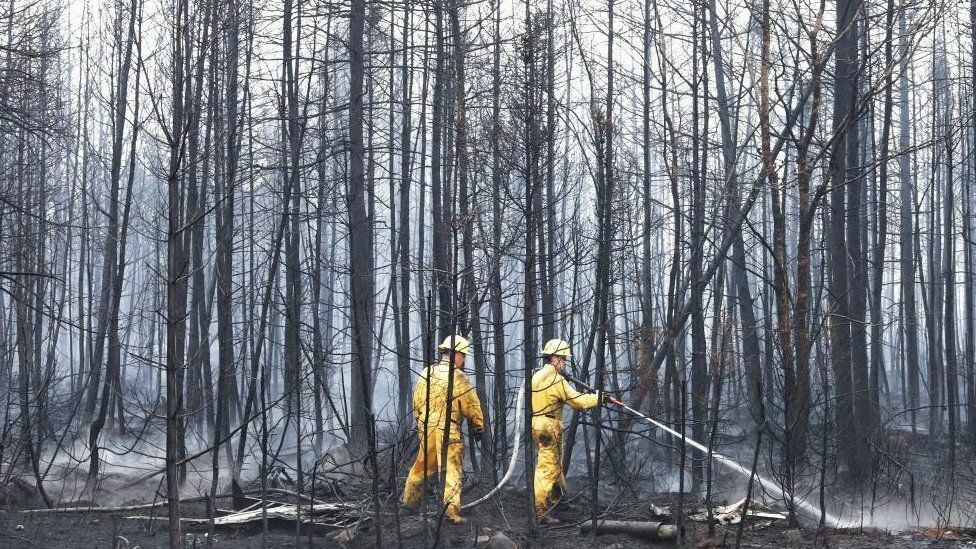Wildfire smoke forces millions in North America to wear masks outdoors

Intense wildfires in Canada have led to poor air quality levels across North America, prompting millions of people to be advised to wear N95 masks outdoors. New York plans to distribute free masks starting today, while Canadian officials have recommended wearing masks for those unable to stay indoors. The smoky conditions are expected to continue through the weekend, with much of the smoke originating from Quebec where 150 fires are currently burning. This has already been labelled as Quebec’s worst fire season on record, with over 15,000 residents expected to evacuate.
New York Governor Kathy Hochul announced the distribution of one million masks to state residents, emphasising that this is a temporary situation unrelated to Covid. She also assured that New York City buses and trains have high-quality air filtration systems, making them safe for travel. Environment Canada warned that conditions in Toronto would worsen as more smoke pours in, and in a special weather bulletin, recommended wearing masks outdoors.
The US Environmental Protection Agency (EPA) classified air quality in much of the north-east as “unhealthy”, particularly for those with respiratory concerns. An orange haze has enveloped New York City, obscuring landmarks such as the Statue of Liberty. Mayor Eric Adams urged New Yorkers to limit outdoor activity as much as possible. Zoos have moved animals indoors, carriage horse rides have been suspended in New York, and schools in the Washington DC area cancelled outdoor activities due to “code red” air quality levels. Detroit was ranked as the fifth worst major metropolitan area in the world for air pollution by IQAir.
Public health officials advise against outdoor exercise and encourage minimising exposure to the smoke, as it poses immediate and long-term health risks. Canada is on track for its worst wildfire season on record, with experts attributing the trend to a warmer and drier spring than usual. Over 3.8 million hectares of land have already been burned by fires across Canada, an area 12 times the 10-year average for this time of year. The White House announced that more than 600 US firefighters have been sent to Canada to assist local officials.
Climate change increases the risk of hot, dry weather that fuels wildfires. The world has warmed by approximately 1.2C since the industrial era began, and temperatures will continue to rise unless governments make significant cuts to emissions. According to Matthew Adams, a professor at the University of Toronto and director of its Centre of Urban Environments, immediate effects of inhaling wildfire smoke include shortness of breath, elevated pulse, chest pain, and inflammation in the eyes, nose, and throat. He said that on days with elevated air pollution, there is an increased number of hospital visits, typically by individuals with pre-existing respiratory diseases.
Long-term health issues such as cancer or lung disease have also been linked to wildfire smoke, particularly for those living in areas experiencing frequent forest fires. Small particles in the smoke haze can enter the bloodstream and other parts of the body, potentially causing DNA mutations and other health problems. Prolonged exposure to wildfire smoke has also been shown to affect pregnant women and their unborn children. For those living in cities far from the fires but under air advisories, Professor Adams advised limiting outdoor exercise and staying indoors to reduce exposure. In areas closer to the fires, he recommended wearing an N95 mask outside to block inhalation of most smoke particles.
Latest Thailand News
Follow The Thaiger on Google News:


























